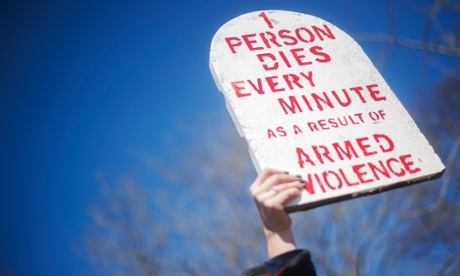Attention, unsurprisingly, is being focused on Britain's role in supplying arms to Israel.
Since 2010, Britain has granted licences to Israel worth £42m for 131 defence industry manufacturers.
These range from components for drones to military radars, targeting systems and electronic warfare equipment.
MPs on four Commons committees asked the government last month to explain why it has approved arms exports to Israel and the Occuped Palestinian Territories including for "anti-riot/ballistic shields", components for combat vehicles, small arms, sniper rifles, and military communications equipment.
Campaigners have staged a protest at a UAV Engines' factory in Lichfield, which they say supplies engines for drones being used in Gaza. The company is a subsidiary of the Israeli defence contractor Elbit, manufactures engines for "various size tactical UAV's [unmanned aerial vehicles], target drones and single-mission platforms".
Former international development secretary Andrew Mitchell has asked the governement to take tougher action over Israel's attacks on Gaza, after the resignation of Foreign Office minister, Lady Warsi. Liberal Democrat ministers, including business secretary, Vince Cable, responsible for arms exports, are said to be frustrated with the failure of the prime minister, David Cameron, foreign secretary, Philip Hammond, and chancellor George Osborne's to take a tougher line on Israel.
Israel is not the only recipient of British arms approved by highly questionable decisions. Commons committees last month said more than 3,000 export licences for weapons worth £12bn were approved for 28 destinations described by the Foreign Office as "countries of human rights concern".
High on the list is Saudi Arabia, the recipient of more British weapons than any other country. It is the biggest foreign customer, after the US, of BAE Systems, Britain's largest arms company and biggest manufacturing employer. Export licenses worth £3.8bn have been approved for British arms companies' sales to Saudi Arabia under David Cameron's premiership, according to CAAT.
Last year alone, the government approved the export of £1.6bn of arms to Saudi Arabia. Saudi Arabia is vital to BAE, which this year signed a deal a deal worth well over £4bn for 72 Eurofighter Typhoon jets. The company is hoping for a further £1bn-plus contract from the Saudis to upgrade the Typhoons.
While Israel continues to occupy the West Bank in breach of international law, Saudi Arabia has been funding the spread of that most intolerant brand of Islam, Wahhabi absolutism.
"Saudi Arabia not only exports oil, but tanker-loads of quasi-totalitarian religious dogma and pipelines of jihadi volunteers, even as it struggles to insulate itself from the blowback", the Financial Times' David Gardner, observed last week in a devastating column.
The House of Saud, he added, "abominates the violent presumption of Isis as much as it abhors the rival brand of pan-Islamic fundamentalism of the Muslim Brotherhood. Yet the kingdom still spews out the corrosive poison that helps fuel religion-based fanaticism. The Isis rampage of destruction of shrines and mosques, for instance, continues the two centuries-old record of Wahhabi iconoclasm".
Saudi Arabia's role as a the world's leading oil exporter, a leading arms buyer, and counterweight to Iran in the Gulf had shielded it from criticism.
Cameron has made it clear, in the Gulf trips he has taken, that morality and principle - and even the UK's long term security interests - have no place when it comes to selling arms.
It may be the same for other countries.
The trouble is British ministers regard weapons as an absolute priority, a vital export.


You need to be a member of 12160 Social Network to add comments!
Join 12160 Social Network